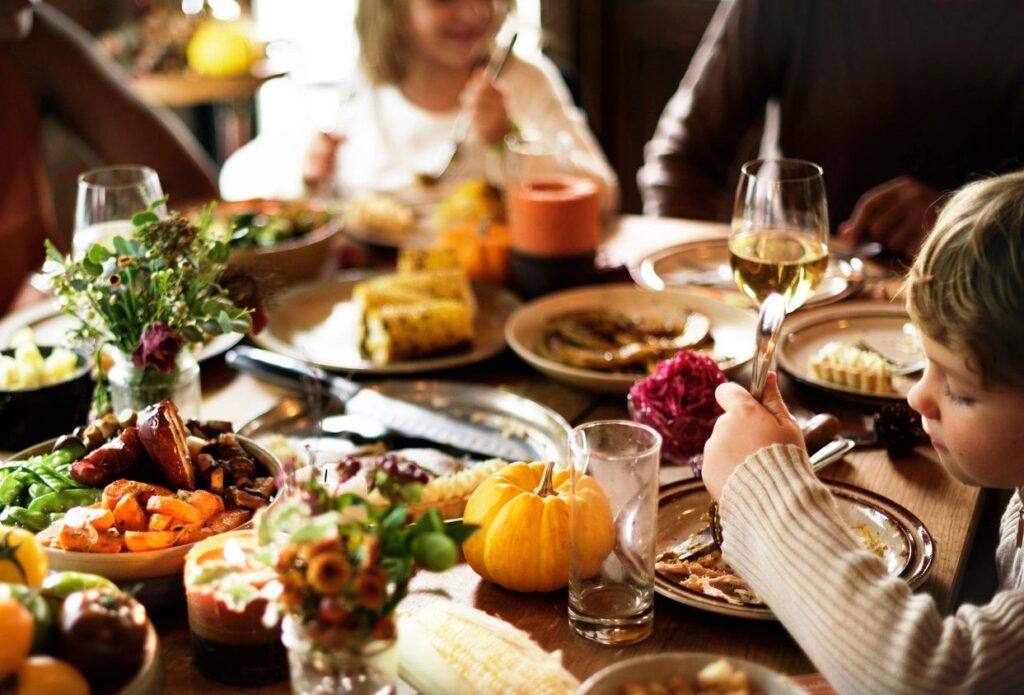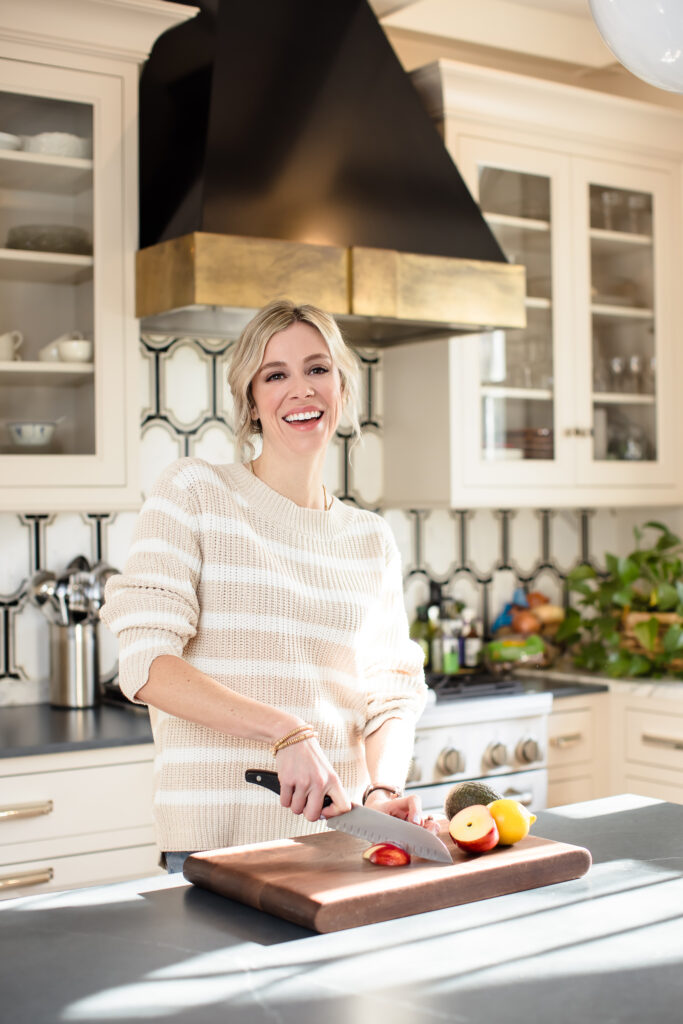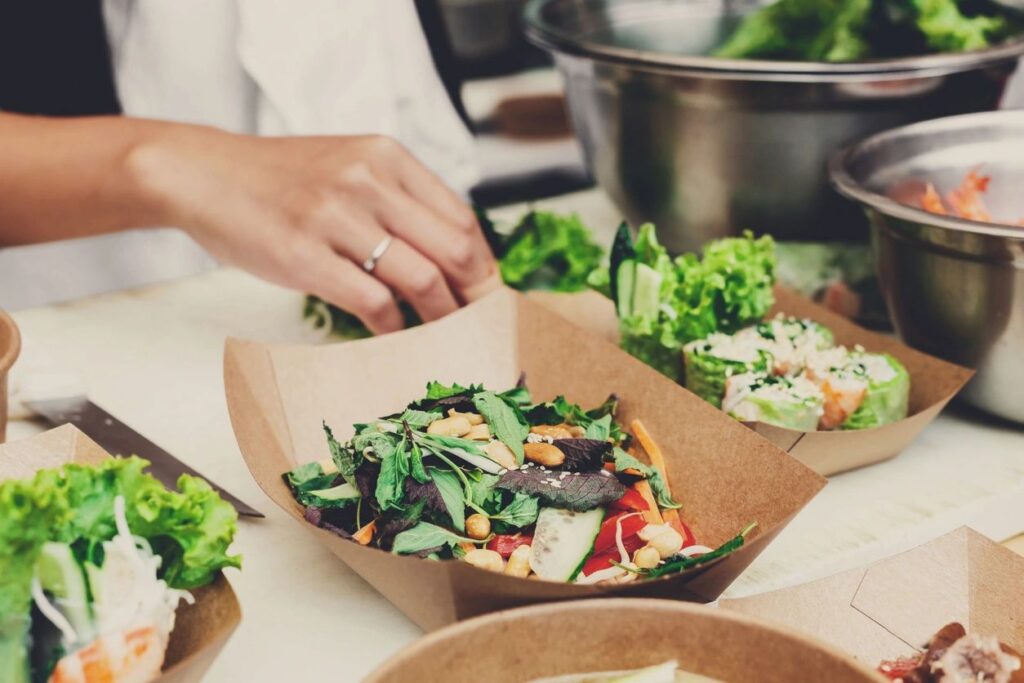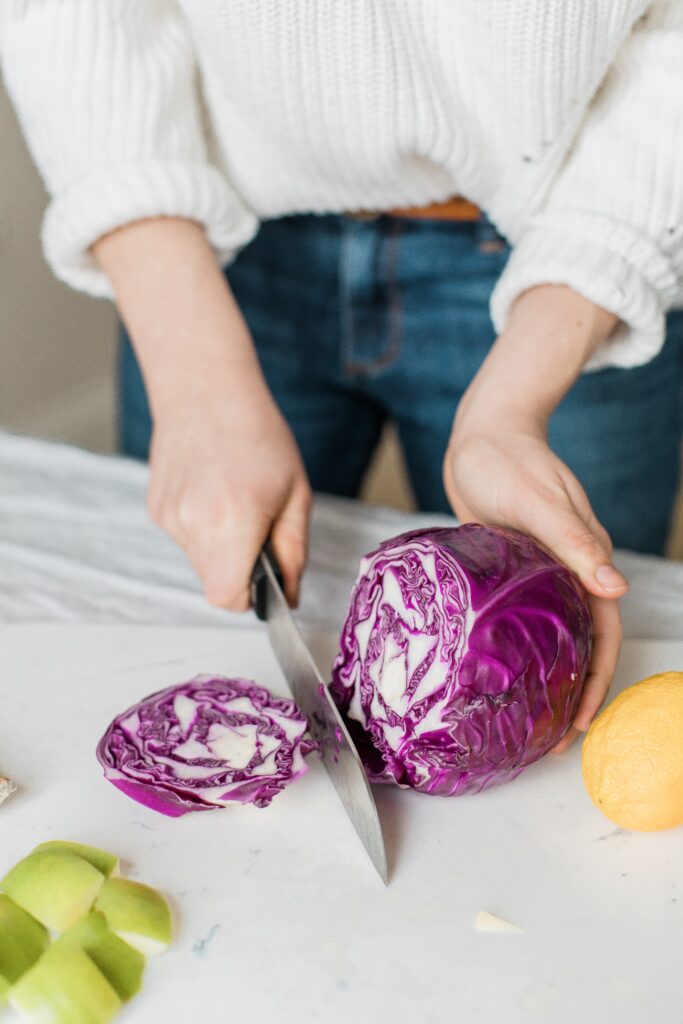Thanksgiving is a holiday that is meant to celebrate togetherness and abundance – with a lot of delicious food! It may also be a stressful time when hijacked by diet culture and diet conversations. This post, contributed by my lovely intern Danielle, provides tips to continue eating intuitively on Thanksgiving.

Eating during the holidays has the potential to cause stress, overthinking and guilt. With the abundance of delicious comfort foods available at every gathering, the thought of eating in an intuitive manner may feel daunting, or even impossible.
In addition, dieting and diet language can get pretty crazy during the holiday season. With workplace challenges to “hold it for the holidays,” media messages to “healthify” traditional recipes or make them “guilt-free,” and more – it can be a confusing time.
To lend more ease and comfort to this process during the holidays, here are some helpful tips:
Don’t skip meals.
Your body doesn’t know what your plans on for Thanksgiving dinner. Whether you’re planning to eat a larger amount later in the day or not, your body will still want regular nourishment during the day.
Skipping meals to “save up” for one big meal will likely only lead to discomfort and stress during the day. When we’re not properly nourished, we’re more likely to experience mood swings, fatigue, and less tolerance to stressful situations. And physically, it can be pretty uncomfortable when you go from no food to lots of food in your stomach. And research shows we’re a lot more likely to eat past physical comfort when we restrict food for longer periods of time. Practice kindness towards your body and feed it comfortably, whatever that means for you.
Check in with yourself.
It’s easy to get distracted with the swirl of festivities, preparation and socialization. Make it a point to be more mindful while you’re eating. Take time to assess your hunger and fullness before, during, and after eating. Tune into your senses – do you find the taste and smell of your food enjoyable?
If paying attention to these cues is new to you, try setting an alarm or reminder to do so. Allow yourself to get curious with the experience.
Balancing your plate can be useful.
Including proteins, fibrous foods (like vegetables, beans, whole grains, fruits), carbohydrates and fats at a meal can allow more balanced blood sugars and energy levels throughout the day. Pairing these four categories together can help make your meal more satisfying.
An example of a balanced Thanksgiving plate: turkey (protein), stuffing (carbohydrates), mashed potatoes & gravy (carbohydrates and fats) and Brussels sprouts (fiber). And don’t forget to honor your tastebuds along the way. This might mean adding a slice of pumpkin pie!
Be prepared for uncomfortable conversations about diets.
Look, we don’t all have the same opinion. And that’s fine! But sometimes, especially during Thanksgiving, dining with others is an opportunity for others to discuss diets, weight, and other diet culture topics you may want to avoid.
You can choose to address this however feels comfortable to you! You can divert the conversation to another topic altogether. Or, if you’re comfortable, you could script a response that acknowledges your desire to stay away from that topics. Something like, “I’d love if we could focus on being together and avoid topics around dieting and body image this year.” Just the act of being prepared for this potentially uncomfortable situation can be useful enough.
Don’t fret if you end the day feeling uncomfortably full.
Give yourself grace if you eat past comfortable fullness. Experiencing this unpleasant feeling can be something of a learning experience as it will give you a reference point for fullness cues in the future. Just note how the physical sensations you may feel. Allow yourself, without judgment, to reflect on how your body is reacting.
And keep in mind that this feeling is temporary. Any changes in the way you feel or your appearance will be gone tomorrow. One day of eating won’t do anything to your body or your health!
Lean in, and enjoy!
Above all else, remind yourself that the holidays are a time for relaxation and focusing on fellowship with family and friends, not fretting over food choices. Allow yourself some grace during this time. Try to be present and appreciate what this holiday is meant for: gratitude, abundance, and appreciating time with others.
Need more support? I offer individual nutrition counseling and intuitive eating guidance. Sign up for a free inquiry call here to see if intuitive eating is right for you!




